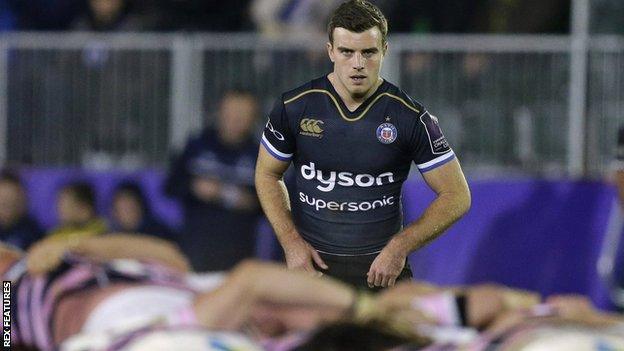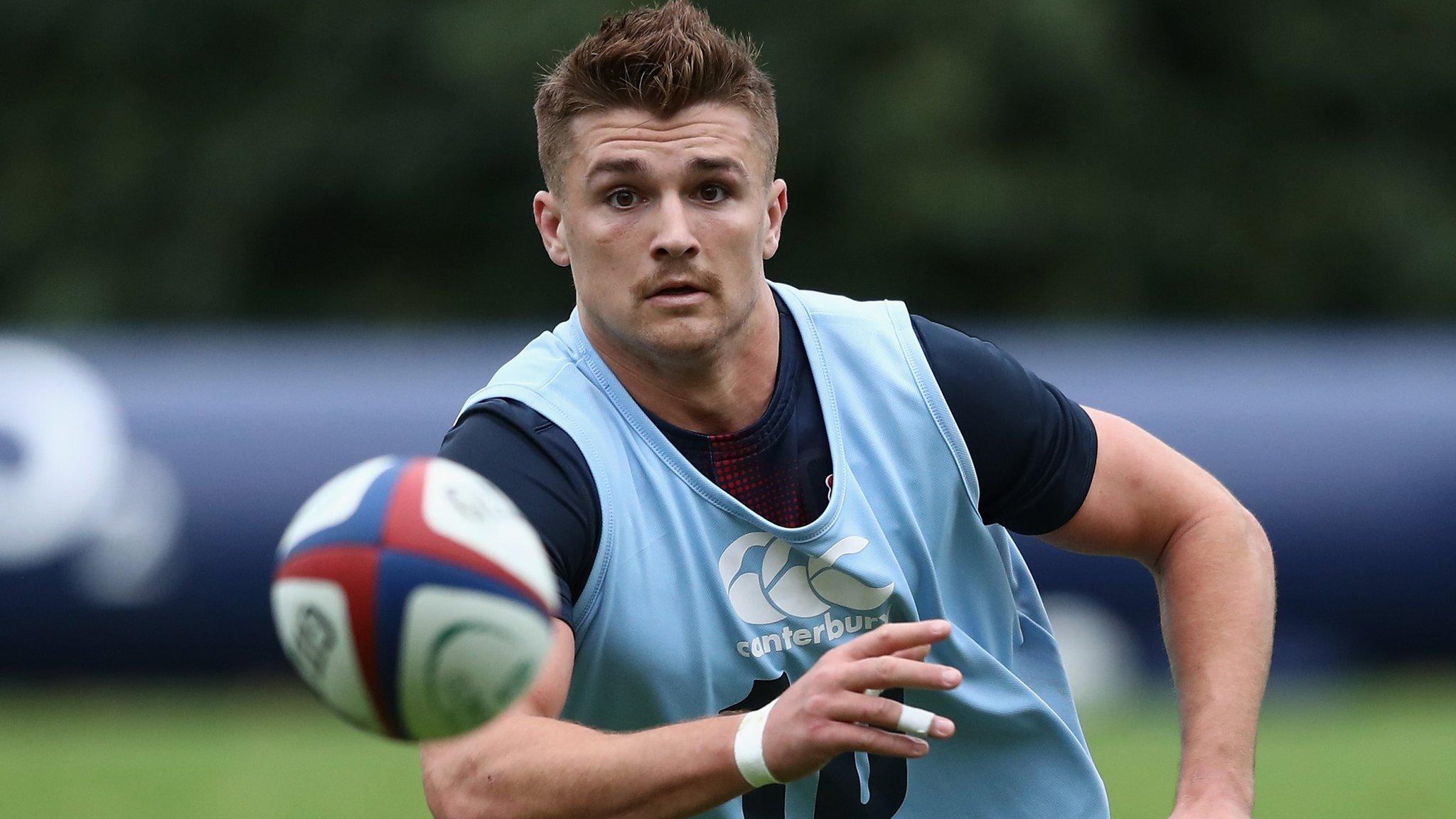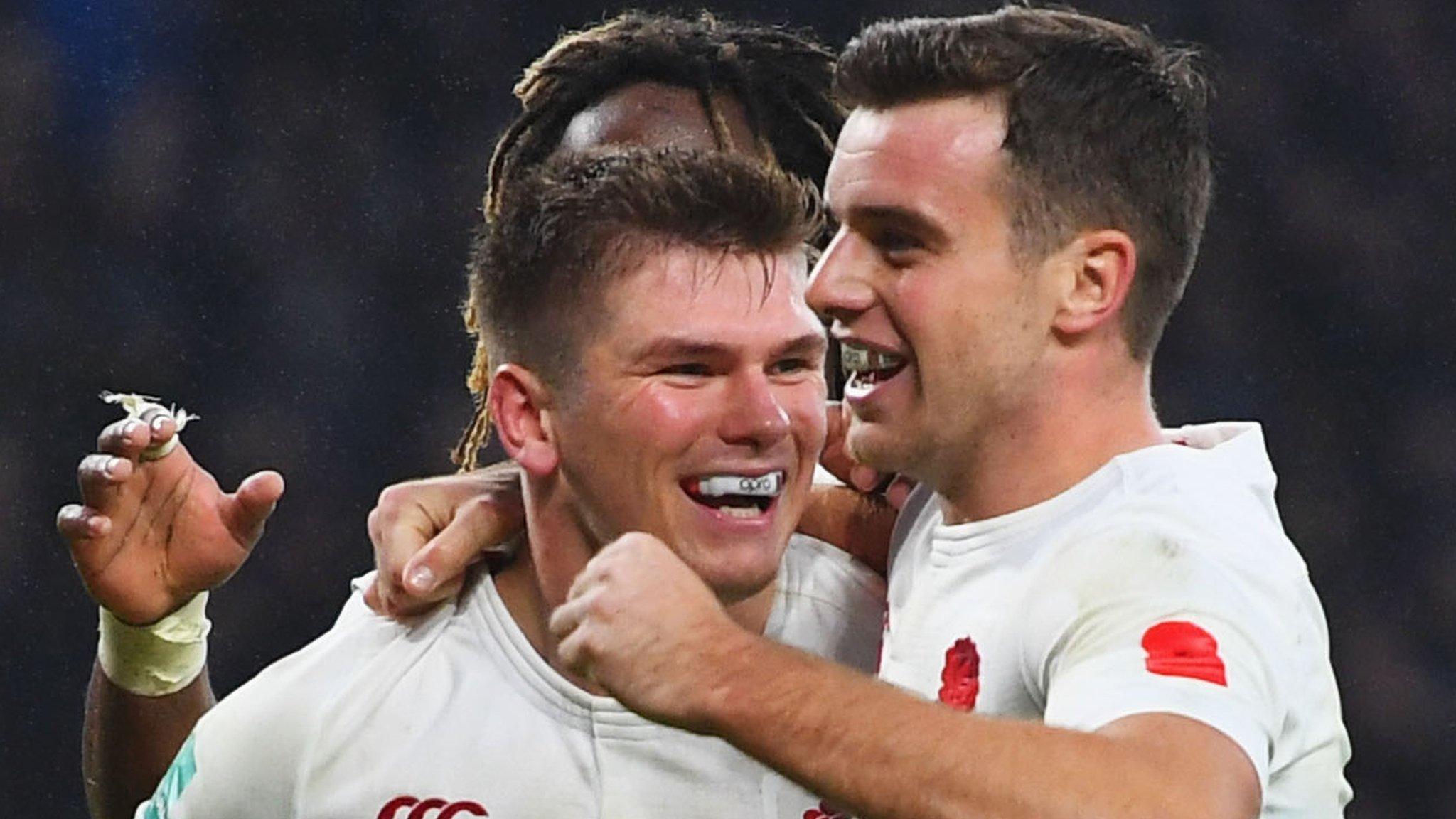George Ford: Sale Sharks boss Steve Diamond interested in England fly-half
- Published

George Ford played a key role during an unbeaten 2016 for England
Sale Sharks are interested in speaking to Bath fly-half George Ford once the negotiation period opens in January, says director of rugby Steve Diamond.
England's Ford has been linked with a move away, external at the end of the 2015-16 season, particularly since his father Mike was sacked as head coach in May.
Ford, 23, was born in Oldham during his father's rugby league career and has played union for Leicester and Bath.
"We would be interested in anyone of George Ford's ability," Diamond said.
Speaking to BBC North West Tonight he added: "We've not had direct contact [with Bath or George] but when 1 January arrives and the transfer window opens we can start discussions if he fancies a chat."
Ford is contracted to Bath until the end of the 2017-18 season, but has a break clause in his contract at the end of the present campaign.
On Monday, Bath head coach Todd Blackadder said: "If George makes a decision to leave at the end of the year, that will be his decision and it will be one that we will respect.
"There will be a lot of speculation around his future but we will be guided by what he wants to do and we'll just take it as it comes."
Danny Cipriani's departure to Wasps at the end of 2015-16 left the Sharks with a gap at fly-half.
USA stand-off AJ MacGinty, who was signed from Connacht, and Dan Mugford, who joined from Championship club Nottingham, have both appeared in that position for Sale this season.
The signing of Ford, who has won 30 England caps, would be a major coup for Diamond, who was at Sale when internationals such as Jason Robinson, Bryan Redpath and Sebastian Chabal were signed and the Premiership title was won in 2006.
"Anyone who's watched us this year knows there are two or three positions that we're lacking," Diamond added. "We've got to go for world-class quality if we're to take the club where we want to over the next three to five years.
"The days of us bargain basement shopping have not completely gone. The academy is going to be the foundation of building a club, but we've got to get back the mid-2000s era of buying high-quality players, bringing them in and supplementing with home-grown players.
"We need four or five world-class players, I think, to compete."
- Published14 December 2016

- Published14 November 2016
